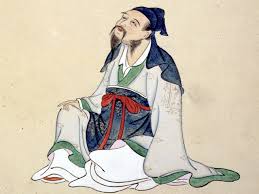
It’s always a good day when you stumble upon a book of poetry you love, a day that introduces you to a new poet who has written plenty of other books you can now explore, a day that time forgets but you won’t soon because, well, it was so fun being lost in the thicket of its hours and minutes.
Such was yesterday morning when I waded into David Budbill’s Moment to Moment: Poems of a Mountain Recluse. Budbill, a Vermont poet, appeals to me for a few reasons. Let me enumerate a few:
- His poems frequently allude to the ancient poets of China and Japan.
- His poems are grounded in nature. There’s a Walden-esque air to his work, though he’d much prefer I say a T’ang Dynasty air to his work, maybe.
- His poems can be self-deprecating.
- His poems have a sense of humor.
- His poetry comes alive on the page due to its strong sense of voice.
- He pulls no punches when it comes to the Poohbahs of Poetry, people who write obscure poetry, the New Yorker type poets and, of course, the ubiquitous, inbred MFA-machine types.
- His poems are simple, much like me.
Good enough reason to celebrate a day and a poet, to not only line up more Budbill books to read, but seek more of the humble poetry he admires from a distant Chinese and Japanese past. When books lead to books, a bibliophile is a happy being!
Here is a taste of Budbill’s straightforward poems, most of them short, many of them demonstrating traits shared above:
“When I Came to Judevine Mountain”
When I came to Judevine Mountain
I thought
all my troubles would cease,
but I brought
books and papers–my ambition–
so now, still,
all I know is grief.
“In the Ancient Tradition”
I live within the ancient tradition:
the poet as mountain recluse,
withdrawn and hidden,
a life of genteel poverty,
a quiet life of meditation,
which gives me lots of time
to gnash my teeth and worry over
how I want to be known and read
by everyone and have admirers
everywhere and lots of money!
“Like the Clouds”
Our lives are like the clouds.
We come from out of nowhere,
take some shape a little while,
then disappear.
No wonder we all want
money, power, prestige,
immortality from poetry.
“The Three Goals”
The first goal is to see the thing itself
in and for itself, to see it simply and clearly
for what it is.
No symbolism, please.
The second goal is to see each individual thing
as unified, as one, with all the other
ten thousand things.
In this regard, a little wine helps a lot.
The third goal is to grasp the first and second goals,
to see the universal and the particular,
simultaneously.
Regarding this one, call me when you get it.
“Another Lie”
This silence, this emptiness,
this freedom to listen and dream
are all I’ve ever wanted.
And if that were true my
ambition, bitterness, and envy
would have left me years ago.
“Be Glad”
Why become wise
when you can be stupid?
Why become sophisticated
when you can be simple and original?
If you are artless and ordinary,
the literati, who recognize only
artifice and self-consciousness,
will ignore you.
Be glad with just a cup of tea,
a bird’s song,
a small book of plain poems,
and your anonymity.
“Dilemma”
I want to be
famous
so I can be
humble
about being
famous.
What good is my
humility
when I am
stuck
in this
obscurity?
“The Cycle of the Seasons”
The cycle of the seasons is to teach us to prepare
for our own deaths.
We get to practice every year, especially in the fall.
I’ve had fifty-eight practice sessions now.
But I’m not getting anywhere.
I can’t seem to get it.
The more I practice, the older I get,
the less I want to die.
“An Age of Academic Mandarins”
This is an age of academic mandarins
who manufacture secret vocabularies
so they can keep their verses to themselves
and away from ordinary people
who could never understand the erudition
of their obtuse allusions, or the quirky twists
of their self-indulgent minds.
Ah, Po Chü-i, how they would laugh at you,
My Friend, standing there in your kitchen
testing your poem on your illiterate cook to see
if it is plain enough so that she and people like her
will be able to comprehend what you have to say.
And when she says she doesn’t know what you
are talking about, you go back to your study
to make it plainer, more easily accessible–
pure, clean, simple: so anyone can understand.
–all poems from Moment to Moment: Poems of a Mountain Recluse by David Budbill, Copper Canyon Press, 1999.


